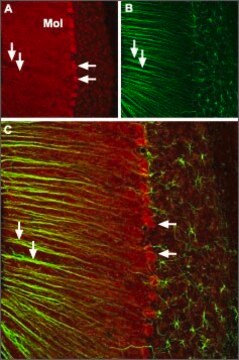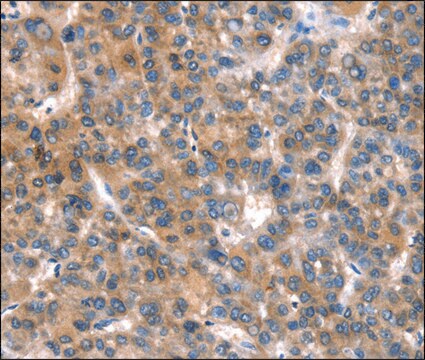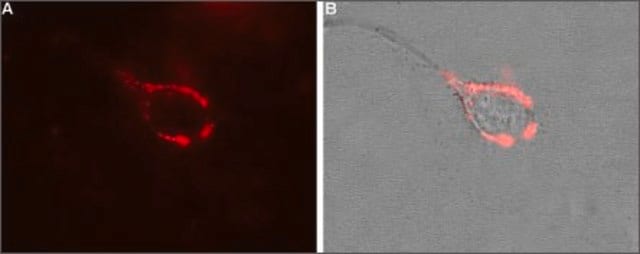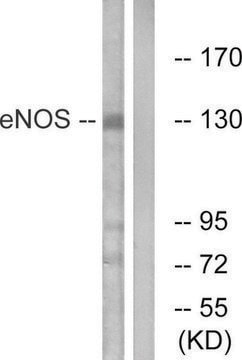C1103
Anti-Calcium Channel (α1 Subunit), Pan antibody produced in rabbit
affinity isolated antibody, lyophilized powder
About This Item
Produits recommandés
Source biologique
rabbit
Niveau de qualité
Conjugué
unconjugated
Forme d'anticorps
affinity isolated antibody
Type de produit anticorps
primary antibodies
Clone
polyclonal
Forme
lyophilized powder
Espèces réactives
mouse, rat
Technique(s)
immunohistochemistry: suitable using rat heart sections (The epitope can be masked by other subunits in some Ca2+ channels.)
western blot: 1:200 using rat brain membranes
Numéro d'accès UniProt
Température de stockage
−20°C
Modification post-traductionnelle de la cible
unmodified
Informations sur le gène
mouse ... Cacna1c(12288)
rat ... Cacna1c(24239)
Spécificité
Immunogène
Application
Immunocytochemistry (1 paper)
Actions biochimiques/physiologiques
Forme physique
Clause de non-responsabilité
Vous ne trouvez pas le bon produit ?
Essayez notre Outil de sélection de produits.
Code de la classe de stockage
11 - Combustible Solids
Classe de danger pour l'eau (WGK)
WGK 2
Point d'éclair (°F)
Not applicable
Point d'éclair (°C)
Not applicable
Certificats d'analyse (COA)
Recherchez un Certificats d'analyse (COA) en saisissant le numéro de lot du produit. Les numéros de lot figurent sur l'étiquette du produit après les mots "Lot" ou "Batch".
Déjà en possession de ce produit ?
Retrouvez la documentation relative aux produits que vous avez récemment achetés dans la Bibliothèque de documents.
Notre équipe de scientifiques dispose d'une expérience dans tous les secteurs de la recherche, notamment en sciences de la vie, science des matériaux, synthèse chimique, chromatographie, analyse et dans de nombreux autres domaines..
Contacter notre Service technique








